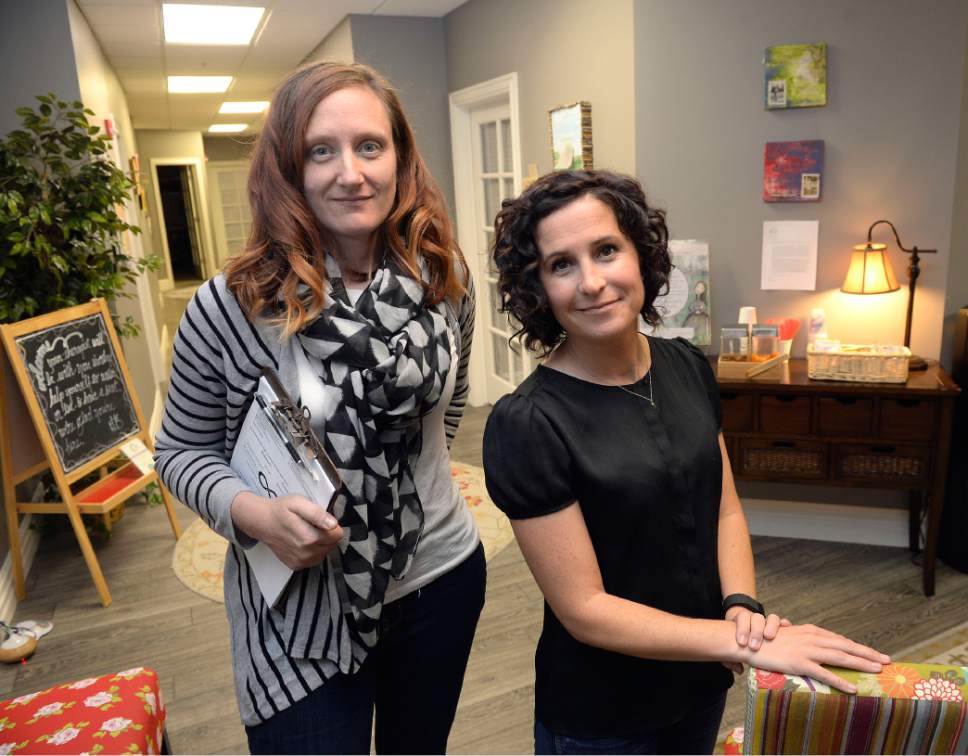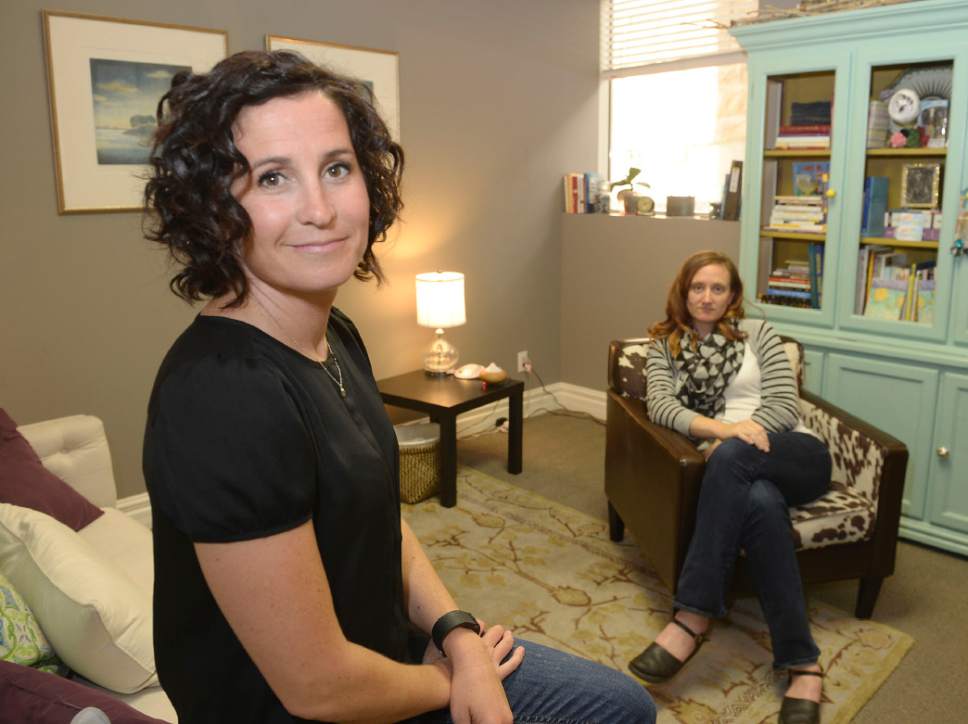This is an archived article that was published on sltrib.com in 2016, and information in the article may be outdated. It is provided only for personal research purposes and may not be reprinted.
Carrie Mercer's children chased her up the basement stairs of their Herriman home, racing past family photos on their way to watch TV in the bedroom she shares with her husband, Josh.
Looking around the home, with kids giggling in the adjoining room, one would never know the couple were on the verge of divorce two years ago.
Carrie and Josh were never the stereotypical soon-to-be-parting-ways pair. Even after a decade of marriage, they rarely fought. They worked together as a team. They held hands. Their problem was one that exists below the surface of many marriages: intimacy.
"As the years went on," Carrie said, "I honestly didn't care if I ever had sex again."
No one had talked to her about sex before she and Josh married. She was just expected to know how to navigate something incredibly complicated.
The Mormon couple had tried counseling, but it wasn't successful. Carrie said the therapist put the onus on her to improve the couple's sex life, which only made her feel worse.
"I always thought it was my fault, and I lived for years with the guilt that I can't make my husband happy," she said. "But, at the same time, I was like, 'I don't really care anymore because I'm tired.' "
Then Josh called The Healing Group after hearing about it on the radio. Carrie credits the mental-health center with saving their marriage.
The Healing Group taught them how to better communicate their needs and be blatantly honest with each other, Carrie said. "It was eye-opening for both us."
Physical and emotional intimacy helps couples bond and generally improves their happiness and well-being. If that aspect is missing in a relationship, it can affect everything else.
The LDS Church's policy manual for its leaders reinforces that notion, stating that "married couples should ... understand that sexual relations within marriage are divinely approved not only for the purpose of procreation, but also as a way of expressing love and strengthening emotional and spiritual bonds between husband and wife."
Even so, sex can be uncomfortable to talk about, especially in Mormon culture, where it often is seen as a taboo topic.
Founder Kristin Hodson, who is a member of The Church of Jesus Christ of Latter-day Saints, said she has a lot of clients who struggle with this, so she offers an opportunity to openly discuss sexuality and intimacy without the presence of religion, unless the client brings it up.
"Most people," she said, "have never had a place in their life where they can ask questions, be curious and do it in a judgment-free zone."
The center debuted in 2009 and specializes in, among other matters, postpartum depression and eating disorders along with sex and intimacy. It exists because Hodson found a void in Salt Lake City area mental-health care.
Hodson was wracked with anxiety, anger and obsessive-compulsive urges after giving birth to her first child. No one could tell her what was wrong.
She now knows it was postpartum depression, a condition she never learned about in school. If she — a therapist herself — had a hard time knowing what was happening, she wondered, what was it like for other people?
About 1 in 8 women experience postpartum depression, a type of depression that occurs after having a baby. Symptoms include unusual amounts of crying, anger and feeling disconnected from your baby, according to the Centers for Disease Control and Prevention.
Hodson said she could not find a place to adequately address her struggles, so she started her own. She decided The Healing Group should focus on sex and intimacy, too, another subject many avoid discussing frankly.
Not Hodson. She jumped at an opportunity to write a book about it four years ago. She loved it so much, she became a certified sex therapist.
It may not seem like the typical role for someone who identifies as Mormon, Hodson said, but "I pride myself on being a walking dichotomy. What I really like is putting things together that seemingly don't go together."
In fact, Hodson said, the Mormon community has been great, and many express thanks for what she and her team of 11 therapists and educators are doing.
The Mercers certainly are.
The couple now have the tools to confront many of their problems without the help of a therapist, but they return to The Healing Group every few months or so when problems arise. For example, the couple are considering a fifth child and need help working through that decision.
Carrie Mercer hopes this kind of counseling becomes more common in Utah moving forward.
"If there are any other problems in the house, we'd consult a professional, but somehow [this counseling] is taboo," she said. "It's the most important thing in our lives, yet [people] find it so difficult and degrading that [they] would have to seek help from somebody else."
Twitter @alexdstuckey





